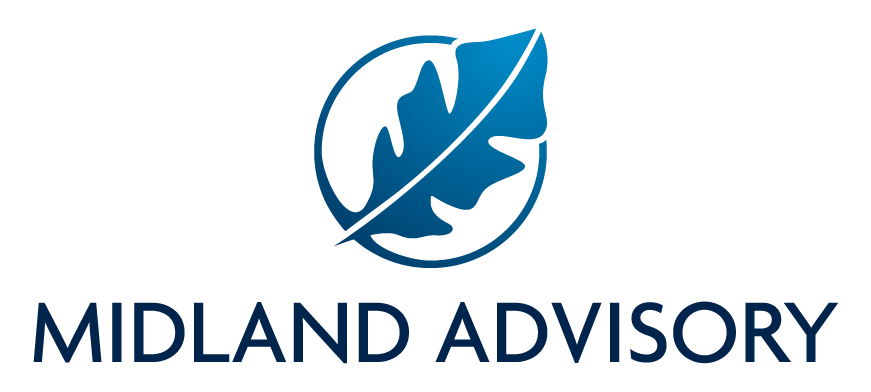Midland Advisory | Newsroom

What are Required Minimum Distribution (RMDs,) and how do they affect you?
Throughout your working years, you will likely contribute to your retirement accounts to accumulate funds for the future. Once you reach a certain age, IRS rules require you to draw down your savings from certain accounts and pay income taxes. These withdrawals are required minimum distributions (RMDs) and generally must be taken each year by December 31 once you reach a certain age. Let’s explore RMD rules and which options you have to make the most of your retirement savings and avoid unnecessary penalties.
Understanding RMD rules
- Employer-based retirement plans like a pension (defined benefit, 401(k), or 403(b)
- Profit-sharing plans
- Employee stock ownership plans (ESOPs)
- Traditional individual retirement accounts (IRAs)
- SEP IRA
- SIMPLE IRA
- 457(b) plans if money is deferred on a pre-tax basis
In general, you must begin taking withdrawals from your retirement plan account at age 72 (age 73 if you turn 72 after December 31, 2022.1)
"You can withdraw more than the minimum amount if you so choose," share Tyler De Haan, Certified Financial Professional and Director of Advanced Sales at Sammons Financial Group. “Just remember that your withdrawals are commonly included in your taxable income."
Calculating RMDs
It’s important you do not miss taking RMDs, since you could be subject to a 25% tax penalty if you fail to pay the minimum amount on time. If you pay as soon as possible, this tax penalty may be reduced to 10%.“Though there may be benefits to delaying RMDs to age 73 and 75 after Secure 2.0’s passage. It may make distributions larger and increase the amount of taxable income in later years of retirement,” adds De Haan. “This is one of the reasons why it is important to evaluate your financial plan to help minimize taxation throughout your entire retirement to make sure there are no unintended consequences.”
Like many tax-related issues, RMDs can be complicated, so talk to your tax advisor or financial professional before making any decisions. They can help you calculate your minimum distributions and discuss ways to minimize the impact of your RMDs.
Annuities and RMDs
Ideas for RMD money
Reinvest your distributions
Treat yourself
Create an emergency fund
Pay for tuition
Share with family
Give to charity
1 IRS, Retirement Plan and IRA Required Minimum Distribution FAQs, irs.gov
Neither Midland National nor any financial professionals acting on its behalf should be viewed as providing legal, tax, or investment advice. Please rely on your qualified tax professional.
The term financial professional is not intended to imply engagement in an advisory business in which compensation is not related to sales. Financial professionals are independently contracted with(Midland National and are insurance licensed that will be paid a commission on the sale of an insurance product.
B4-MN-7-23
| Not FDIC/NCUA Insured | Not A Deposit Of A Bank | Not Bank Guaranteed |
| May Lose Value | Not Insured By Any Federal Government Agency | |
34297YREV 1-8-26
© 2012- Midland National. All rights reserved. Midland National is a member of 
Sammons Financial® is the marketing name for Sammons® Financial Group, Inc.’s member companies, including Midland National® Life Insurance Company. Annuities and life insurance are issued by, and product guarantees are solely the responsibility of, Midland National Life Insurance Company.
